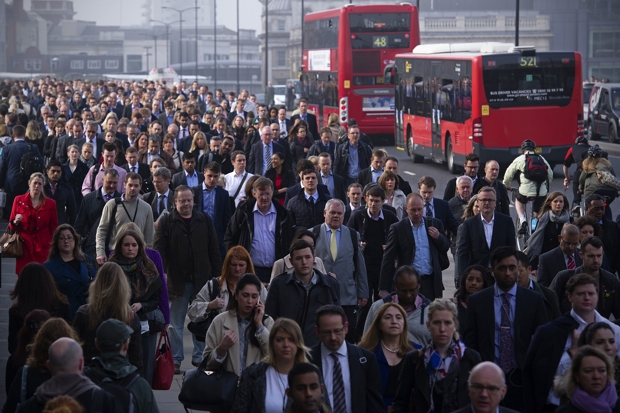As of 6.30pm this evening, Londoners will (once again) suffer miserably at the hands of the transport unions, which have called another 24-hour strike on the Underground system in support of a demand for higher payments for operating a night-time service on parts of the network. Many commuters – forced onto overcrowded buses – will arrive late for work, while many more will be unable to work at all. Shops and restaurants will lose custom. When the last such strike took place, on 15-16 July, the Federation of Small Businesses estimated the cost at around £300 million. With more tourists in the capital, the cost of this next strike is likely to be even higher.
But the unions will bear none of these financial consequences. Because the law presently gives workers, both collectively and individually, complete protection from any civil action anyone might decide to bring against them.
A strike is a breach of contract. Normally, any relevant party to a contract may be sued if the contract is breached and that breach results in provable financial loss. But you cannot sue strikers for breach of contract. Neither can you sue their union for inducement to breach of contract. The Trade Disputes Act of 1906 (the provisions of which were confirmed in the Trade Unions & Labour Relations Act of 1992), provides that no trade union can be held liable – to an employer or indeed anyone else – for any economic loss that may be caused ‘in contemplation or furtherance of a trade dispute’.
The 1906 Act had its origins in a famous case brought by the Taff Vale Railway Company against the Amalgamated Society of Railway Servants. In that case – which eventually cost the Society some £46,000 in damages and costs (several millions at today’s prices) – the House of Lords held that since a union could own property, and was capable of inflicting harm on others, it was liable to pay damages for the harm it inflicted – in this case the economic loss to the company.
Five years later the newly-elected Liberal government legislated to reverse the effect of this judgment. But the reasoning of the House of Lords seems to me eminently sensible. What the unions have at present is indeed power without responsibility. So for the next 24 hours, as Londoners struggle to work, ask yourself this question: why should everyone else be liable for the economic losses their actions cause to others, but not trade unions?






Comments